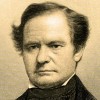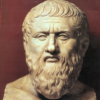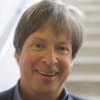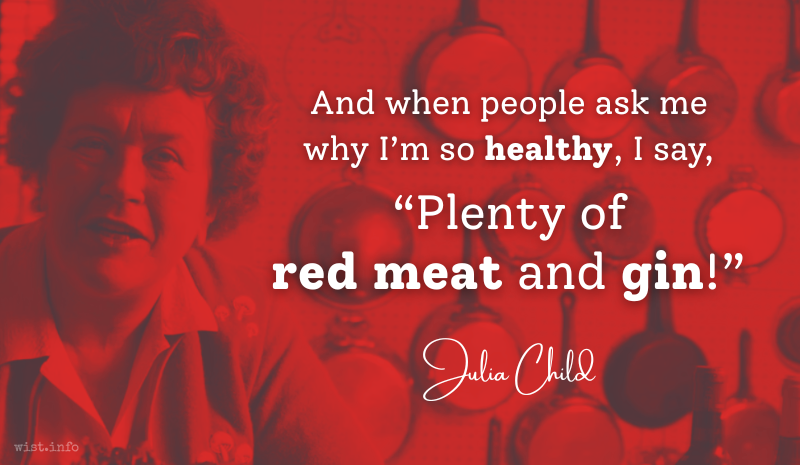Helth is like munny, we never hav a true idea ov its value untill we lose it.
[Health is like money; we never have a true idea of its value until we lose it.]
Josh Billings (1818-1885) American humorist, aphorist [pseud. of Henry Wheeler Shaw]
Josh Billings’ Farmer’s Allminax, 1875-05 (1875 ed.)
(Source)
Quotations about:
health
Note not all quotations have been tagged, so Search may find additional quotes on this topic.
Cheerfulness is, in the first place, the best promoter of health. Repinings, and secret murmurs of heart, give imperceptible strokes to those delicate fibres of which the vital parts are composed, and wear out the machine insensibly; not to mention those violent ferments which they stir up in the blood, and those irregular disturbed motions which they raise in the animal spirits.
Joseph Addison (1672-1719) English essayist, poet, statesman
Essay (1712-05-24), The Spectator, No. 387
(Source)
Apollo: all I ask is what I own already,
And the peace to enjoy it, sound in body
And mind, and a promise of honor
In old age, and to go on singing to the end.[Frui paratis et valido mihi
Latoë, dones, et precor, integra
Cum mente; nec turpem senectam
Degere, nec cithara carentem.]Horace (65–8 BC) Roman poet, satirist, soldier, politician [Quintus Horatius Flaccus]
Odes [Carmina], Book 1, # 31, l. 17ff (1.31.17-20) (23 BC) [tr. Raffel (1983)]
(Source)
This poem is said to have been inspired by the new temple to Apollo built by Augustus on the Palatine in AUC 726. It is framed as being from a poet (likely Horace himself) considering what to ask from Apollo as a blessing. These are the concluding four lines.
Apollo here is referred to as the son of the goddess Latona (Greek Leto).
The reason for the longer-than-usual list of translators is that this passage is quoted at the end of Montaigne's Essays, Book 3, ch. 13 "Of Experience," the final essay in his collection, written in 1587, and translations from that context are also included here.(Source (Latin)). Alternate translations:Apollo graunt, enjoy health I may
That I have got, and with sound minde, I pray:
Nor that I may with shame spend my old yeares,
Nor wanting musike to delight mine eares.
[tr. Florio (1603)]Latona's Son,
In Minde and Bodies health my own
T' enjoy; old Age from dotage free,
And solac'd with the Lute, give me.
[tr. Fanshaw; ed. Brome (1666)]O (great Apollo) grant
To me in health, and free from life's annoy,
Things native, and soon gotten to enjoy;
And with a mind compos'd old Age attain,
Not loathsome, nor depriv'd of Lyrick strain.
[tr. "Sir T. H."; ed. Brome (1666)]A Mind to use my present Store
With Health and Life, but not so long
As brings Contempt, or cramps my Song;
Grant this Apollo, and I ask no more.
[tr. Creech (1684)]O thou son of Latona, grant me to enjoy my acquisitions, and to possess my health, together with an unimpaired understanding, I beseech thee; and that I may not lead a dishonorable old age, nor one bereft of the lyre.
[tr. Smart/Buckley (1853)]O grant me, Phoebus, calm content,
Strength unimpairEd, a mind entire,
Old age without dishonour spent,
Nor unbefriended by the lyre!
[tr. Conington (1872)]And health
Give thou, Latoë, so I might
Enjoy my present wealth!
Give me but these, I ask no more,
These, and a mind entire --
And old age, not unhonour'd, nor
Unsolaced by the lyre!
[tr. Martin (1864)]Give me health in myself to enjoy the things granted,
O thou son of Latona; sound mind in sound body;
Keep mine age free from all that degrades,
And let it not fail of the lyre.
[tr. Bulwer-Lytton (1870)]Grant it to me, Apollo, that I may enjoy what I have in good health; let me be sound in body and mind; let me live in honor when old, nor let music be wanting.
[tr. Cotton/Hazlitt (1877)]Grant it to me, Apollo, that I may enjoy my possessions in good health; let me be sound in mind; let me not lead a dishonourable old age, nor want the cittern.
[tr. Cotton/Hazlitt (1877), alternate]Son of Latona, grant me, I pray, to enjoy in health of body and soundness of mind what I possess, and let my old age be honourable and rendered happy by the charms of music.
[tr. Elgood (1893)]Give me then health, Apollo; give
Sound mind; on gotten goods to live
Contented; and let song engage
An honoured, not a base, old age.
[tr. Gladstone (1894)]Health to enjoy the blessings thou givest me,
Grant me, Latoe, with a sound mind, I pray;
Nor let my age be e'er unhonour'd.
Nor unattended with lyric measures.
[tr. Phelps (1897)]Grant me in health to relish what I have
In store, Latona's son, with mind I pray,
Unclouded -- and to pass an eld
Not base, nor of my harp deprived.
[tr. Garnsey (1907)]Grant, god, that with my lot
I live content, hale, and still fresh my gift, --
Grant that in age I may not drift
Long years, my lyre forgot.
[tr. Marshall (1908)]Grant me, O Latona’s son, to be content with what I have, and, sound of body and of mind, to pass an old age lacking neither honour nor the lyre!
[tr. Bennett (Loeb) (1912)]Grant me, Apollo, for the rest,
Contentment, health, sound wits and bright,
An honoured eld, by music blest.
[tr. Mills (1924)]Grant, I pray, son of Latona, that I enjoy full health, and with mind uunimpaired, the goods that have been prepared for me; and that my old age be not unhonoured, nor lack the lyre.
[tr. Ives (1925)]Grant me, Latona's son, but health,
Grant me a mind entire,
Contentment and a dignified old age,
Not lacking in the sweetness of the lyre.
[tr. Zeitlin (1934)]Grant me but health, Latona's son,
And to enjoy the wealth I've won,
And honored age, with mind entire
And not unsolaced by the lyre.
[tr. Frame (1943)]Delight had I healthily in what lay handy provided.
Grant me now, Latoe:
full wit in my cleanly age,
Nor lyre lack me, to tune the page.
[tr. Pound (c. 1955)]Grant me, Apollo, that I may enjoy with healthy body and sound mind the goods that have been prepared for me, and that my old age be honourable and no stranger to the lyre.
[tr. Cohen (1958)]Here's what I crave most, son of Latona, then:
Good health, a sound mind, relish of life, and an
Old age that still maintains a stylish
Grip on itself and the lyric metres.
[tr. Michie (1963)]Vouchsafe, O Son of Latona, that I may enjoy those things I have prepared; and, with my mind instact I pray, may I not degenerate into a squalid senility, in which the lyre is wanting.
[tr. Screech (1987)]Apollo grant that I be satisfied
With what I have as what I ought to have,
And that I live my old age out with honor,
In health of mind and body, doing my work.
[tr. Ferry (1997)]Grant me, O son of Latona, I pray
that I take joy in what I have
Sound in mind and body entire
and my old age lacking neither honor nor lyre.
[tr. Alexander (1999)]Apollo, the son
of Latona, let me enjoy what I have,
and, healthy in body and mind, as I ask,
live an old age not without honour,
and one not lacking the art of the lyre.
[tr. Kline (2015)]
There is this difference between those two temporal blessings health and money: money is the most envied, but the least enjoyed; health is the most enjoyed, but the least envied; and this superiority of the latter is still more obvious when we reflect that the poorest man would not part with health for money, but that the richest would gladly part with all their money for health.
Charles Caleb "C. C." Colton (1780-1832) English cleric, writer, aphorist
Lacon: Or, Many Things in Few Words, Vol. 1, § 225 (1820)
(Source)
The great majority of us are required to live a life of constant, systematic duplicity. Your health is bound to be affected if, day after day, you say the opposite of what you feel, if you grovel before what you dislike and rejoice at what brings you nothing but misfortune. Your nervous system isn’t a fiction, it’s a part of your physical body, and your soul exists in space and is inside you, like the teeth in your head. You can’t keep violating it with impunity.
Boris Pasternak (1890-1960) Russian poet, novelist, and literary translator
Doctor Zhivago [До́ктор Жива́го], Part 2, ch. 15 “Conclusion,” sec. 6 [Yury] (1955) [tr. Hayward & Harari (1958), UK ed.]
(Source)
Alternate translations:The great majority of us are required to live a life of constant, systematic duplicity. Your health is bound to be affected if, day after day, you say the opposite of what you feel, if you grovel before what you dislike and rejoice at what brings you nothing but misfortune. Our nervous system isn’t just a fiction, it’s a part of our physical body, and our soul exists in space and is inside us, like the teeth in our mouth. It can’t be forever violated with impunity.
[tr. Hayward & Harari (1958), US ed.]A constant, systematic dissembling is required of the vast majority of us. It’s impossible, without its affecting your health, to show yourself day after day contrary to what you feel, to lay yourself out for what you don’t love, to rejoice over what brings you misfortune. Our nervous system is not an empty sound, not a fiction. It’s a physical body made up of fibers. Our soul takes up room in space and sits inside us like the teeth in our mouth. It cannot be endlessly violated with impunity.
[tr. Pevear & Volokhonsky (2010)]
Be temperate in wine, in eating, girls, and sloth;
Or the Gout will seize you and plague you both.Benjamin Franklin (1706-1790) American statesman, scientist, philosopher, aphorist
Poor Richard (1734 ed.)
(Source)
Man seems to be a rickety poor sort of a thing, any way you take him; a kind of British Museum of infirmities and inferiorities. He is always undergoing repairs. A machine that was as unreliable as he is would have no market.
Mark Twain (1835-1910) American writer [pseud. of Samuel Clemens]
Letters from the Earth, “The Damned Human Race,” sec. 5 “The Lowest Animal” (1962) [ed. DeVoto]
(Source)
There are such things as to speak well, to speak easily, to speak correctly, and to speak seasonably. We offend against the last way of speaking if we mention a sumptuous entertainment we have just been present at before people who have not had enough to eat; if we boast of our good health before invalids; if we talk of our riches, our income, and our fine furniture to a man who has not so much as an income or a dwelling; in a word, if we speak of our prosperity before people who are wretched; such a conversation is too much for them, and the comparison which they then make between their condition and ours is very painful.
[Il y a parler bien, parler aisément, parler juste, parler à propos. C’est pécher contre ce dernier genre que de s’étendre sur un repas magnifique que l’on vient de faire, devant des gens qui sont réduits à épargner leur pain; de dire merveilles de sa santé devant des infirmes; d’entretenir de ses richesses, de ses revenus et de ses ameublements un homme qui n’a ni rentes ni domicile; en un mot, de parler de son bonheur devant des misérables: cette conversation est trop forte pour eux, et la comparaison qu’ils font alors de leur état au vôtre est odieuse.]
Jean de La Bruyère (1645-1696) French essayist, moralist
The Characters [Les Caractères], ch. 5 “Of Society and Conversation [De la Société et de la Conversation],” § 23 (5.23) (1688) [tr. Van Laun (1885)]
(Source)
(Source (French)). Alternate translations:Some men talk well, easily, justly, and to the purpose: those offend in the last kind, who speak of the Banquets they are to be at, before such as are reduc'd to spare their Bread; of sound Limbs, before the Infirm; of Demesnes and Revenues, before the Poor and Needy; of fine Houses and Furniture, before such as have neither Dwelling or Moveables: in a word, who speak of Prosperity, before the Miserable. This conversation is too strong for 'em, and the comparison you make between their condition and yours is odious.
[Bullord ed. (1696)]There is speaking well, speaking easily, speaking justly, and speaking seasonably: 'Tis transgressing the last rule, to speak ofthe sumptuous Entertainments you have made, before such as are reduc'd to want of Bread; of a healthy Constitution of Body, before the Infirm; of Demesnes, Revenues and Furniture, before a Man who has neither Dwelling, Rents, nor Movables; in a word, to speak of your Prosperity before the Miserable: this Conversation is too strong from them, and the Comparison they make between their Condition and yours is odious.
[Curll ed. (1713)]There is speaking well, speaking easily, speaking justly, and speaking seasonably: It is offending against the last, to speak of Entertainments before the Indigent; of sound Limbs and Health before the Infirm; of Houses and Lands before one who has not so much as a Dwelling; in a Word, to speak of your Prosperity before the Miserable; this Conversation is cruel, and the Comparison which naturally rises in them betwixt their Condition and yours is excruciating.
[Browne ed. (1752)]There is a difference between speaking well, speaking easily, speaking with judgement and speaking opportunely. We fail in this last respect when we enlarge upon the splendid meal we have just enjoyed in front of people who have to be thrifty of their bread; or boast of our health in the presence of invalids; or talk about our wealth, our fortune and property to a man who has neither home nor income; in a word, when we speak of our happiness in front of those who are wretched; such conversation is too painful for them, and the comparison they are bound to make between your state and their own is intolerable.
[tr. Stewart (1970)]
DAWN, n. The time when men of reason go to bed. Certain old men prefer to rise at about that time, taking a cold bath and a long walk, with an empty stomach, and otherwise mortifying the flesh. They then point with pride to these practices as the cause of their sturdy health and ripe years; the truth being that they are hearty and old, not because of their habits, but in spite of them. The reason we find only robust persons doing this thing is that it has killed all the others who have tried it.
Ambrose Bierce (1842-1914?) American writer and journalist
“Dawn,” The Cynic’s Word Book (1906)
(Source)
Included in The Devil's Dictionary (1911). Originally published in the "Devil's Dictionary" column in the San Francisco Wasp (1881-12-02).
We are talking about a nine-month bout of symptoms of varying severity, often including nausea, skin discolorations, extreme bloating and swelling, insomnia, narcolepsy, hair loss, varicose veins, hemorrhoids, indigestion, and irreversible weight gain, and culminating in a physiological crisis which is occasionally fatal and almost always excruciatingly painful. If men were equally at risk from this condition — if they knew their bellies might swell as if they were suffering from end-stage cirrhosis, that they would have to go nearly a year without a stiff drink, a cigarette, or even an aspirin, that they would be subject to fainting spells and unable to fight their way onto commuter trains — then I am sure that pregnancy would be classified as a sexually transmitted disease and abortions would be no more controversial than emergency appendectomies.
Care to our coffin adds a nail, no doubt;
And every grin, so merry, draws one out.John Wolcot (1738-1819) English satirist (pseud. Peter Pindar)
Expostulatory Odes to a Great Duke and a Little Lord, Ode 15, ll. 5-6 (1789)
(Source)
Moderation. Small helpings. Sample a little bit of everything. These are the secrets of happiness and good health. You need to enjoy the good things in life, but you need not overindulge.
Julia Child (1912-2004) American chef and writer
“What I’ve Learned,” interview by MIke Sager, Esquire (2001-06)
(Source)
Then Old Age said again, — Come, let us walk down the street together, — and offered me a cane, an eyeglass, a tippet, and a pair of over-shoes. — No, much obliged to you, said I. I don’t want those things, and I had a little rather talk with you here, privately, in my study. So I dressed myself up in a jaunty way and walked out alone; — got a fall, caught a cold, was laid up with a lumbago, and had time to think over this whole matter.
We may all resort, at the summer solstice, to the warmest spots of Italy, to Ardea, Pestum, and Baiae, fervid with the heat of the constellation Leo, since Curiatus condemned the air of Tivoli, when he was on the point of being transported from its extolled waters to those of the Styx. Fate is not to be diverted by localities: when death comes, the pestilent Sardinia is to be found in the middle of the healthy Tivoli.
[Ardea solstitio Castranaque rura petantur
Quique Cleonaeo sidere fervet ager,
Cum Tiburtinas damnet Curiatius auras
Inter laudatas ad Styga missus aquas.
5Nullo fata loco possis excludere: cum mors
Venerit, in medio Tibure Sardinia est.]Martial (AD c.39-c.103) Spanish Roman poet, satirist, epigrammatist [Marcus Valerius Martialis]
Epigrams [Epigrammata], Book 4, epigram 60 (4.60) (AD 89) [tr. Amos (1858)]
(Source)
Sardinia was considered a proverbially unhealthy locale, while Tivoli (Tibur) was considered a healthy resort to travel to during the summer.
(Source (Latin)). Alternate translations:When Leo rages with the summer's sun,
From pestilential climates never run;
Since, in the wholesom'st and the purest air,
The destinies Croatius did not spare.
When thy time's come, death from no place is bound,
Sardinia in the midst of Tibur's found.
[tr. Killigrew (1695)]To Ardea, Pestum, roam, and e'er so far;
Or glow beneath the Cleonean star:
While Curiatius damns Tiburtian gales,
As down the healthfull streams to Styx he fails.
The Fates no place debars: if Death be there,
Alike is Tibur's and Sardinia's air.
[tr. Elphinston (1782), 9.10]Let us in the summer solstice retire to Ardea and the country about Paestum, and to the tract which burns under the Cleonaean constellation; since Curiatius has condemned the air of Tivoli, carried off as he was to the Styx notwithstanding its much-lauded waters. From no place can you shut out fate: when death comes, Sardinia is in the midst of Tivoli itself.
[tr. Bohn's Classical (1859)]Go where you will, you cannot shut
The door on Fate; when Death draws nigh,
Then far Sardinia is as near
As Tibur.
[ed. Harbottle (1897)]Seek ye Ardea in summer's heat, and the field sof castum, and teh meads scorched by Cleonae's star, seeing that Curiatius condemns Tibur's air; from amid waters so belauded was he sent to Styx. In no spot canst thou shut out fate; when death comes even in Tibur's midst is a Sardinia.
[tr. Ker (1919)]Now must we say, if thou be wise
In summer’s heat to Ardea turn,
Or seek the plain where Castrum lies
And the hot stars of Leo burn.
He that is laid in yonder grave
Saith, "Tarry not but get thee gone."
Here sought he Arno’s healing wave,
But found the stream of Acheron?
[tr. Pott & Wright (1921)]To Ardea and Castrum let us go
In the dog-days when all the heaven's aglow.
Tibur's a death trap; Curiatius died,
Sent mid its breezes to the Stygian tide.
Death ranges at his will; when so inclined
In Tibur's bosom he'll Sardinia find.
[tr. Francis & Tatum (1924), ep. 195]Now in the blazing heat we might as well escape
to Castrum, or Ardea, or any sunburnt landscape,
since Curiatius has laid a curse
on the air of Tivoli by dying there,
where the waters are also salubrious.
No place can fend off death. It's no worse
to expire in sickly Sardinia than in a spa.
[tr. Bovie (1970)]At the solstice let us make for Ardea and the Castran countryside and whatever fields are scorched by Cleonae's constellation, since Curiatius damns the breezes of Tibur, dispatched to Styx amid her lauded waters. In no place can you shut out fate; when death comes, in the midst of Tibur is Sardinia.
[tr. Shackleton Bailey (1993)]
A good conscience is to the Soul what health is to the body; it preserves constant ease and serenity within us; and more than countervails all the calamities and afflictions which can befall us from without.
Joseph Addison (1672-1719) English essayist, poet, statesman
Essay (1713-08-15), The Guardian, No. 135
(Source)
But our machines have now been running for 70. or 80. years, and we must expect that, worn as they are, here a pivot, there a wheel, now a pinion, next a spring, will be giving way: and however we may tinker them up for awhile, all will at length surcease motion. Our watches, with works of brass and steel, wear out within that period.
Thomas Jefferson (1743-1826) American political philosopher, polymath, statesman, US President (1801-09)
Letter (1814-07-05) to John Adams
(Source)
Jefferson (and Adams) lived another 12 years, both dying on 4 July 1826.
John Quincy Adams is well, sir; quite well, I thank you. But the house in which he lives at the present time is becoming dilapidated. It’s tottering upon its foundations. Time and the seasons have nearly destroyed it. Its roof is pretty well worn out. Its walls are much shattered and tremble with every wind. The old tenement is becoming almost uninhabitable, and I think John Quincy Adams will have to move out of it soon. But he himself is quite well, sir; quite well.
John Quincy Adams (1767-1848) US President (1825-29)
(Attributed)
(Source)
When, at eighty years old, he was asked by a passer-by on the street, "How is John Quincy Adams today?" The anecdote is found with some frequency c. 1900, about fifty years after Adams' death in 1848, at that age.
Men that look no further than their outsides, think health an appurtenance unto life, and quarrel with their constitutions for being sick; but I that have examined the parts of man, and know upon what tender filaments that fabric hangs, do wonder that we are not always so; and considering the thousand doors that lead to death, do thank my God that we can die but once.
[Men that looke no further than their outsides thinke health an appertinance unto life, and quarrell with their constitutions for being sick; but I that have examined the parts of man, and know upon what tender filaments that Fabrick hangs, doe wonder that we are not alwayes so; and considering the thousand dores that lead to death doe thanke my God that we can die but once.]
Thomas Browne (1605-1682) English physician and author
Religio Medici, Part 1, sec. 44 (1643)
(Source)
Health is relative. There is no such thing as an absolute state of health or sickness. Everyone’s physical, mental, and emotional condition is a combination of both.
Theodore Isaac Rubin (1923-2019) American psychiatrist and author
The Angry Book, “Let Freedom Ring” (1970)
(Source)
A rich man cannot enjoy a sound mind nor a sound body without exercise and abstinence; and yet these are truly the worst ingredients of poverty.
Henry Home, Lord Kames (1696-1782) Scottish jurist, agriculturalist, philosopher, writer
Introduction to the Art of Thinking, ch. 2 (1761)
(Source)
What some call health, if purchased by perpetual anxiety about diet, isn’t much better than tedious disease.
Life is not living, but living in health.
[Vita non est vivere, sed valere vita est.]
Martial (AD c.39-c.103) Spanish Roman poet, satirist, epigrammatist [Marcus Valerius Martialis]
Epigrams [Epigrammata], Book 6, epigram 70 (6.70.15) (AD 91) [tr. Ker (1919)]
(Source)
(Source (Latin)). Alternate translations:It is not life to live, but to be well.
[tr. Burton (1621)]Not all who live long, but happily, are old.
[tr. Killigrew (1695)]For sense and reason tell,
That life is only life, when we are well.
[tr. Hay (1755)]For life is not to live, but to be well.
[tr. Johnson, in The Rambler, #48, cited to Elphinston (1 Sep 1750)]To brethe can just not dying give:
But, to be well, must be to live.
[tr. Elphinston (1782), 2.115]For life is not simply living, but living in health.
[tr. Amos (1858)]Life consists not in living, but in enjoying health.
[tr. Bohn's Classical (1859)]It is not life to live, but to be well.
[ed. Harbottle (1897)]The blunderer who deems them so,
Misreckons life and much mistakes it,
He thinks 'tis drawing breath -- we know
'Tis health alone that mars or makes it.
[tr. Pott & Wright (1921)]Life is not life, but health is life indeed.
[tr. Francis & Tatum (1924), #310]To live is not just life, but health.
[tr. Shepherd (1987)]Life is not being alive, but being well.
[tr. Shackleton Bailey (1993)]
KATHERINE: He made her melancholy, sad, and heavy,
And so she died. Had she been light like you,
Of such a merry, nimble, stirring spirit,
She might ha’ been a grandam ere she died.
And so may you, for a light heart lives long.William Shakespeare (1564-1616) English dramatist and poet
Love’s Labour’s Lost, Act 5, sc. 2, l. 15ff (5.2.15-19) (c. 1595)
(Source)
To Rosaline.
Please stop assuming that longevity and perfect health is always the correct option. No. Sometimes fun costs ya. It just does, you know? And that’s OK, you’re willing to make that purchase. Sammy Davis, Jr. was 64 when he died. Give me 64 Sammy-years, I’ll be happy.
Never learn anything until you find you have been made uncomfortable for a good long while by not knowing it; when you find that you have occasion for this or that knowledge, or foresee that you will have occasion for it shortly, the sooner you learn it the better, but till then spend your time in growing bone and muscle; these will be much more useful to you than Latin and Greek, nor will you ever be able to make them if you do not do so now, whereas Latin and Greek can be acquired at any time by those who want them.
We Americans live in a nation where the medical-care system is second to no one in the world, unless you count maybe 25 or 30 little scuzzball countries like Scotland that we could vaporize in seconds if we felt like it.
Yet for a long time mortal men have discussed the question whether success in arms depends more on strength of body or excellence of mind; for before you begin, deliberation is necessary, when you have deliberated, prompt action. Thus each of these, being incomplete of itself, requires the other’s aid.
[Sed diu magnum inter mortalis certamen fuit vine corporis an virtute animi res militaris magis procederet. Nam et prius quam incipias, consulto, et ubi consulueris, mature facto opus est. Ita utrumque per se indigens alterum alterius auxilio eget.]
Sallust (c. 86-35 BC) Roman historian and politician [Gaius Sallustius Crispus]
Bellum Catilinae [The War of Catiline; The Conspiracy of Catiline], ch. 1, sent. 5-7 [tr. Rolfe (1931)]
(Source)
Original Latin. Alt. trans.:"But a just estimate of our mental and bodily faculties was not easily made. Which of them was most conducive to the success of military operations, was in former times a question much agitated, and long undecided. It is evident, however, that before the undertaking of a warlike enterprise, judgment is required to concert and plan the necessary measures; vigor in execution is equally necessary. The powers of man, in their separate functions feeble and ineffectual, demand each other's aid, and flourish by mutual assistance." [tr. Murphy (1807)]"It has, however, been a great and long debate, whether success in war is most owing to bodily strength or mental abilities: for, as counsel is necessary before we enter on action, after measures are duly concerted, speedy execution is equally necessary; so that neither of these being sufficient singly, they prevail only by the assistance of each other." [tr. Rose (1831)]"But there has been for a long time a great debate amongst mortals, whether the science of war advanced more by the strength of body or by the abilities of the mind. For both before you begin there is need of counsel; and when you have counselled, there is need of vigorous execution. So whilst both by themselves are defective, the one is strengthened by the assistance of the other." [Source (1841)]"Yet it was long a subject of dispute among mankind, whether military efforts were more advanced by strength of body, or by force of intellect. For, in affairs of war, it is necessary to plan before beginning to act, and, after planning, to act with promptitude and vigor. Thus, each being insufficient of itself, the one requires the assistance of the other." [tr. Watson (1867)]"Not it was long hotly contested among men whether military success was more advanced by mental ability or by bodily strength, for what we need is deliberation before we begin, and after deliberation, then well-timed action; either of itself is deficient and lacks the other's help." [tr. Pollard (1882)]"Yet for a long time there was considerable dispute amongst mortals as to whether it was through the power of the body or the prowess of the mind that military affairs made greater progress. For, before you begin, deliberation is necessary, and, when you have deliberated, speedy action: hence each element, deficient on its own, requires the help of the other." [tr. Woodman (2007)]
And when people ask me why I’m so healthy, I say, “Plenty of red meat and gin!”
Julia Child (1912-2004) American chef and writer
Interview in The World: Journal of the Unitarian Universalist Assoc. (1992)
(Source)
On her 80th birthday. "Red meat and gin" was frequently mentioned by Child in interviews when asked either (a) her comfort foods or (b) the secret of her longevity. She does not seem to have used it in her writing.
Examples:
- Long life: Interview with Rena Pederson
- Long life: Quoted in the Minneapolis Star Tribune, requoted in Reader's Digest (1997-01)
- Confort food: Source
I believe four ingredients are necessary for happiness: health, warm personal relations, sufficient means to keep you from want, and successful work.
Bertrand Russell (1872-1970) English mathematician and philosopher
“Redbook Dialogue,” interview by Tommy Robbins, Redbook (1964-09)
(Source)
Reprinted in Russell Society News, #37 (1983-02), p. 25.
Away with complaints; for he is not poor, who has enough of things to use. If stomach, lungs, and feet are all in health, the wealth of kings can give you nothing more.
[Tolle querellas:
Pauper enim non est, cui rerum suppetit usus.
si ventri bene, si lateri est pedibusque tuis, nil
divitiae poterunt regales addere maius.]Horace (65–8 BC) Roman poet, satirist, soldier, politician [Quintus Horatius Flaccus]
Epistles [Epistularum, Letters], Book 1, ep. 12 “To Iccius,” l. 4ff (1.12.4-6) (20 BC) [tr. Fairclough (Loeb) (1926)]
(Source)
(Source (Latin)). Other translations:Do waye therefore thy practysde plaintes, bemone thy selfe no more.
For he that hath the use of goodes, cannot be judged poore.
If that thy bellie, sydes, and féete, and all thy partes be well,
Not wealth of kinges can adde to owght that doth this wealth excell.
[tr. Drant (1567)]Therefore leave off complaining that thou'rt poor:
For he's not poor, whom fortune does produce,
What e're is necessary for his use.
If thou canst get good Diet, and warm Cloaths,
Caesars Estate can't give thee more than those.
[tr. A. B.; ed. Brome (1666)]My Friend complain no more,
He that hath things for use is never poor.
If Thou hast cleanly Food and Cloaths enough,
What more than this can kingly Wealth bestow?
[tr. Creech (1684)]The cease complaining, friend, and learn to live.
He is not poor to whom kind Fortune grants,
Even with a frugal hand, what Nature wants.
Are you with food, and warmth, and raiment blest?
Not royal treasures are of more possest.
[tr. Francis (1747)]Hush then vain murmurs -- throw complaint aside!
He ne'er is poor, whose wants are well supplied.
Possess'd of health and food and raiment, know
Arabia's treasures can no more bestow.
[tr. Howes (1845)]Away with complaints! for that man is by no means poor, who has the use or everything, he wants. If it is well with your belly, your back, and your feet, regal wealth can add nothing greater.
[tr. Smart/Buckley (1853)]A truce to murmuring: with another's store
To use at pleasure, who shall call you poor?
Sides, stomach, feet, if these are all in health,
What more could man procure with princely wealth?
[tr. Conington (1874)]No more complaining, friend! for poor
That man is not who can insure
Whate'er for life is needful found.
Let your digestion be but sound.
Your side unwrung by spasm or stitch.
Your foot unconscious of a twitch,
And could you be more truly blest,
Though of the wealth of kings possessed?
[tr. Martin (1881)]Away with complaining -- for he is not a poor man who has a sufficiency for every need. If you have health in your stomach, your side, and your feet, the riches of kings can give you nothing superior.
[tr. Elgood (1893)]So stop complaining! The man is certainly not poor
Who has everything that he needs. A king’s own ransom
Can’t add a bit more, if your stomach and lungs
And feet are all right.
[tr. Palmer Bovie (1959)]He is not poor who has enough of things to use.
If it is well with your belly, chest and feet,
the wealth of kings can give you nothing more.
[Bartlett's (1968)]Stop complaining.
No one is a pauper who has all the things he needs.
If your belly's good and your lungs and feet are healthy,
no royal treasure could add the slightest bit to yours.
[tr. Fuchs (1977)]Stop complaining!
No one is poor who has enough of all he needs.
If your belly is full and your health is good and your feet
Don’t hurt, why would an emperor’s wealth be worth having?
[tr. Raffel (1983) "Ixus"]No one is poor who can use whatever he has.
[tr. Ferry (2001)]No more complaining!
The man who enjoys the use of commodities isn’t poor.
If stomach, chest, and feet are in good condition, then kings
with all their wealth can add nothing of greater value.
[tr. Rudd (2005 ed.)]Stop complaining:
He’s not poor whose enjoyment of things suffices.
If your lungs, stomach and feet are healthy, royal
Wealth can add nothing.
[tr. Kline (2015)]
Early to rise and early to bed makes a male healthy and wealthy and dead.
James Thurber (1894-1961) American cartoonist and writer
“The Shrike and the Chipmunks”, The New Yorker (1939-02-18)
Often misquoted as "Early to rise and early to bed makes a man healthy, wealthy, and dead."
See Franklin.
With health, everything is a source of pleasure; without it, nothing else, whatever it may be, is enjoyable; even the other personal blessings, — a great mind, a happy temperament — are degraded and dwarfed for want of it. So it is really with good reason that, when two people meet, the first thing they do is to inquire after each other’s health, and to express the hope that it is good; for good health is by far the most important element in human happiness.
[Mit ihr wird alles eine Quelle des Genusses: hingegen ist ohne sie kein äußeres Gut, welcher Art es auch sei, genießbar, und selbst die übrigen subjektiven Güter, die Eigenschaften des Geistes, Gemütes, Temperaments, werden durch Kränklichkeit herabgestimmt und sehr verkümmert. Demnach geschieht es nicht ohne Grund, daß man vor allen Dingen sich gegenseitig nach dem Gesundheitszustande befragt und einander sich wohlzubefinden wünscht: denn wirklich ist dieses bei weitem die Hauptsache zum menschlichen Glück.]
Arthur Schopenhauer (1788-1860) German philosopher
Parerga and Paralipomena, Vol. 1, “Aphorisms on the Wisdom of Life [Aphorismen zur Lebensweisheit],” ch. 2 “What a Man Is [Von dem, was einer ist]” (1851) [tr. Saunders (1890)]
(Source)
(Source (German)). Alternate translation:In general, however, nine-tenths of our happiness depends on health alone. With it everything becomes a source of pleasure, whereas without it nothing, whatever it may be, can be enjoyed, and even the other subjective blessings, such as mental qualities, disposition, and temperament, are depressed and dwarfed by ill-health. Accordingly, it is not without reason that, when two people meet, they first ask about the state of each other's health and hope that it is good; for this really is for human happiness by far the most important thing.
[tr. Payne (1974)]
God bless you, and send you health, which is the first and greatest of all blessings!
Lord Chesterfield (1694-1773) English statesman, wit [Philip Dormer Stanhope]
Letter to his son, #419 (12 Mar 1768)
(Source)
Health is not valued, till Sickness comes.
Thomas Fuller (1654-1734) English physician, preacher, aphorist, writer
Gnomologia: Adages and Proverbs (compiler), # 2478 (1732)
(Source)
The best doctors in the world are Doctor Diet, Doctor Quiet, and Doctor Merryman.
Even while I protest the assembly-line production of our food, our songs, our language, and eventually our souls, I know that it was a rare home that baked good bread in the old days. Mother’s cooking was with rare exceptions poor, that good unpasteurized milk touched only by flies and bits of manure crawled with bacteria, the healthy old-time life was riddled with aches, sudden death from unknown causes, and that sweet local speech I mourn was the child of illiteracy and ignorance. It is the nature of a man as he grows older, a small bridge in time, to protest against change, particularly change for the better.
John Steinbeck (1902-1968) American writer
Travels With Charley: In Search of America, Part 2 (1962)
(Source)
It is better to lose health like a spendthrift than to waste it like a miser. It is better to live and be done with it, then to die daily in the sick-room.
It is only when the rich are sick that they fully feel the impotence of wealth.
Charles Caleb "C. C." Colton (1780-1832) English cleric, writer, aphorist
Lacon: Or, Many Things in Few Words, Vol. 1, § 538 (1820)
(Source)
MESSENGER: Frame your mind to mirth and merriment,
Which bars a thousand harms, and lengthens life.William Shakespeare (1564-1616) English dramatist and poet
Taming of the Shrew, Induction, sc. 2, l. 137ff (c. 1591)
(Source)








































